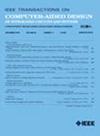iCache: An Intelligent Cache Allocation Strategy for Multitenant in High-Performance Solid-State Disks
IF 2.7
3区 计算机科学
Q2 COMPUTER SCIENCE, HARDWARE & ARCHITECTURE
IEEE Transactions on Computer-Aided Design of Integrated Circuits and Systems
Pub Date : 2024-11-06
DOI:10.1109/TCAD.2024.3492993
引用次数: 0
Abstract
Thanks to high-density flash memory and high parallelism, multitenant solid-state drives (MSSDs) have become a popular high-performance storage device for enhancing cache resource utilization and reducing operational costs within these SSDs. The competition for limited cache resources inside the MSSD among multiple tenants, however, can lead to performance interference among the tenants, and prior studies focused on quality of service (QoS) in MSSDs. An efficient caching scheme is crucial for optimizing SSD performance and lifetime. Existing caching schemes aim to shorten response time by the virtue of improved cache hit rates, which offer limited performance improvement as well as low cache resource efficiency. In this article, we propose an intelligent cache allocation scheme named iCache, which employs a long short-term memory (LSTM) model to capture the I/Os access patterns of workloads and dynamically allocates cache resources inside an MSSD according to maximum benefit point (MBP) and optimal allocation point (OAP). The extensive experimental results demonstrate that iCache reduces response time by up to 87%, 24%, and 20% compared against the existing caching schemes—Shared, Justitia, and MLCache, respectively. The empirical study confirms that the new traits of iCache immensely improve system performance by enhancing the cache efficiency of MSSDs and guaranteeing fairness in performance across varying workloads.iCache:高性能固态硬盘多租户智能缓存分配策略
由于高密度闪存和高并行性,多租户固态硬盘(mssd)已经成为一种流行的高性能存储设备,可以提高缓存资源利用率并降低这些ssd内的操作成本。然而,多个租户对MSSD内有限的缓存资源的竞争可能导致租户之间的性能干扰,并且先前的研究主要集中在MSSD中的服务质量(QoS)上。高效的缓存方案对于优化SSD性能和生命周期至关重要。现有的缓存方案旨在通过提高缓存命中率来缩短响应时间,这提供了有限的性能改进以及较低的缓存资源效率。在本文中,我们提出了一种名为iCache的智能缓存分配方案,该方案采用长短期内存(LSTM)模型捕捉工作负载的I/ o访问模式,并根据最大效益点(MBP)和最优分配点(OAP)在MSSD内动态分配缓存资源。大量的实验结果表明,与现有的缓存方案(shared、justia和MLCache)相比,iCache的响应时间分别减少了87%、24%和20%。实证研究证实,iCache的新特性通过提高mssd的缓存效率和保证不同工作负载的性能公平性,极大地提高了系统性能。
本文章由计算机程序翻译,如有差异,请以英文原文为准。
求助全文
约1分钟内获得全文
求助全文
来源期刊
CiteScore
5.60
自引率
13.80%
发文量
500
审稿时长
7 months
期刊介绍:
The purpose of this Transactions is to publish papers of interest to individuals in the area of computer-aided design of integrated circuits and systems composed of analog, digital, mixed-signal, optical, or microwave components. The aids include methods, models, algorithms, and man-machine interfaces for system-level, physical and logical design including: planning, synthesis, partitioning, modeling, simulation, layout, verification, testing, hardware-software co-design and documentation of integrated circuit and system designs of all complexities. Design tools and techniques for evaluating and designing integrated circuits and systems for metrics such as performance, power, reliability, testability, and security are a focus.

 求助内容:
求助内容: 应助结果提醒方式:
应助结果提醒方式:


